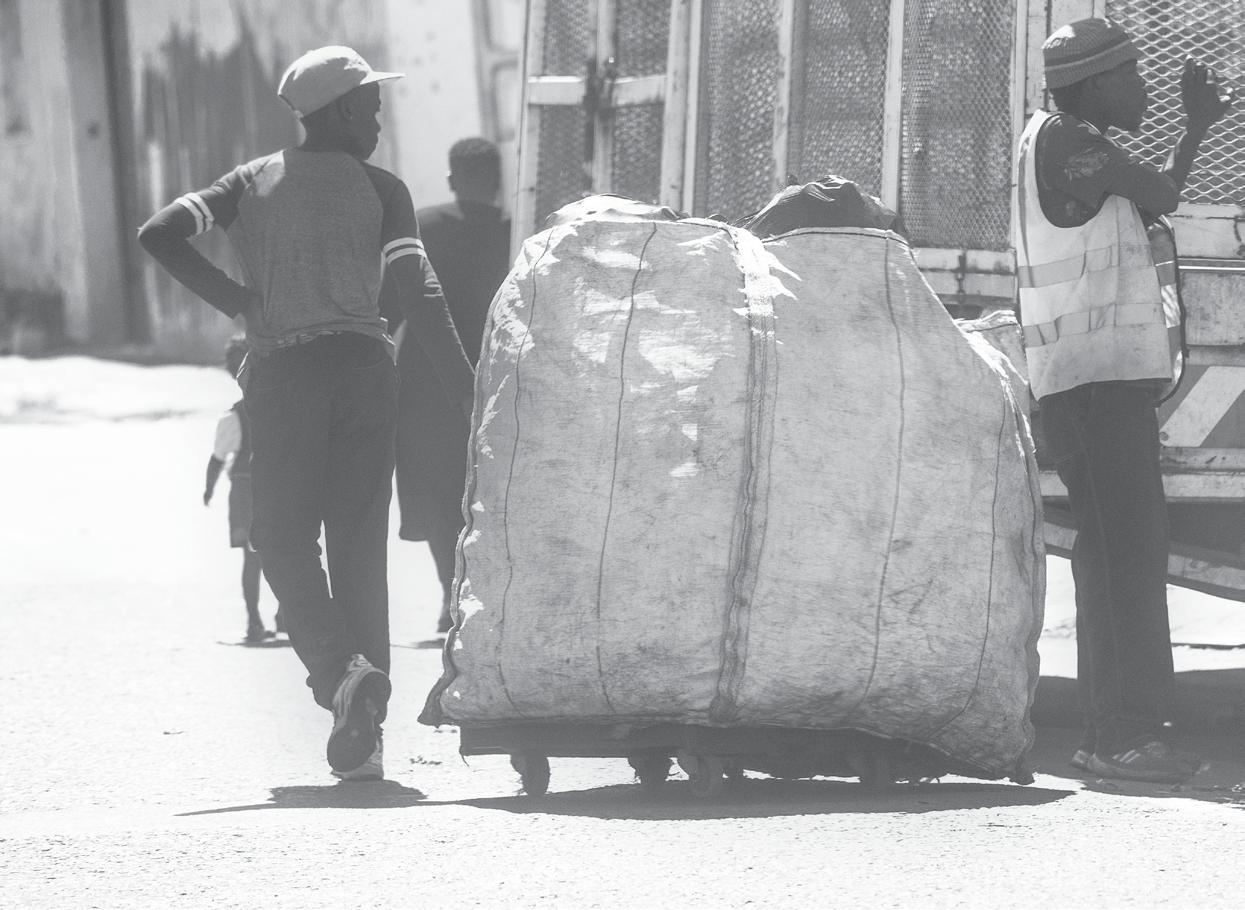CIRCULAR ECONOMY
A pact to reduce plastics usage While global plastic waste statistics are over whelming, initiatives like the South African Plastics Pact aim to tackle the problem by keeping plastics in the economy and out of the environment. By Nombulelo Manyana
R
esearch shows that of all plastics produced each year, more than 8 million tonnes of it is dumped into our oceans and, should we continue business as usual, by 2050 there could be more plastics than fish in the ocean by weight. In addition to the significant impact that plastics have on the environment, the lack of a circular product approach leads to the loss of valuable material. Only 9% of all plastic waste ever produced has been recycled, about 12% has been incinerated, while the rest ends up in landfills, dumps or the environment. With the use of plastics growing worldwide, there is an urgent need to rethink the way they are designed, used and reused. The SA Plastics Pact, launched in January, was developed for this exact reason. The pact was developed by the World Wide Fund for Nature (WWF-SA), in partnership with the South African Plastics Recycling Organisation (Sapro) and the UK’s Waste and Resources Action Programme (WRAP). It brings together key stakeholders in the plastics value chain – businesses, governments and NGOs – behind a common vision to address plastic waste and pollution issues. The first of its kind in Africa, the SA Plastics Pact brings
36
M AY 2 0 2 0
|
ReSource
together a host of South African companies, who have committed to reducing plastics usage by making all plastic packaging reusable, recyclable or compostable by 2025. “Through the SA Plastics Pact, we can support the development of a secondary resource or ‘circular economy’ in South Africa, which will drive investment in infrastructure, support livelihoods and keep our environment free of plastic pollution. We applaud the South African Plastics Pact signatories, who are pioneers in taking the first step towards establishing a circular plastics economy nationally and in the region,” says Lorren de Kock, project manager: Circular Plastics Economy, WWF-SA. The SA Plastics Pact follows similar commitments from other countries across the globe. The pact, managed and delivered by GreenCape, is part of a network started by the Ellen MacArthur Foundation, a circular economy campaign group.
Global Plastics Pact Network Although it has been developed for the South African context, the pact was shaped by experiences of others in the global Plastics Pact Network. The Plastics Pact is a bold initiative bringing together the entire plastics packaging value chain behind a common vision and committing to a set of ambitious targets. The network offers a unique platform to exchange knowledge and
best practices across the globe, which will help to accelerate the transition to a circular economy for plastics. The UK Plastics Pact was the first of the planned global network of plastics pacts. This pact is supported by 68 members who are responsible for 80% of plastic packaging sold in the UK’s supermarkets, and half of all packaging placed on the market. Following the launch of the UK Plastics Pact less than a year ago, the network has become increasingly international and expanding. A Chilean pact, the French National Pact, and a Dutch pact have also been developed and have been followed by other initiatives in the EU and around the world. The Global Commitment has been signed by 250+ organisations, representing 20% of all plastic packaging produced globally. Signatories include many of the world’s largest packaging producers and brands, including well-known consumer businesses such as Danone, H&M Group, L’Oréal, PepsiCo, The Coca-Cola Company and Unilever. It also includes many retailers and recyclers, as well as governments and NGOs. Although each pact sets out its own unique target, the global pact has collective targets, which cover five key areas: • eliminating unnecessar y and problematic single-use plastic packaging • making sure all plastic packaging is reusable, recyclable or compostable



















